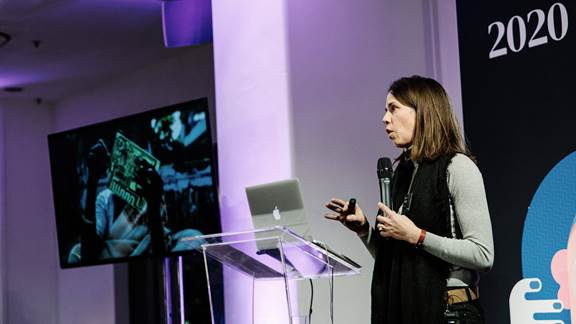One thing we can be certain about is change. In our digitally driven world this change seems to get faster every year in the way we use new technology, engage with customers, solve problems and interact with each other. Then there’s the change we can’t predict. As we write, we're experiencing unprecedented times with the COVID-19 outbreak. Everyone is adapting to new ways of working and keeping as many people as safe as possible.
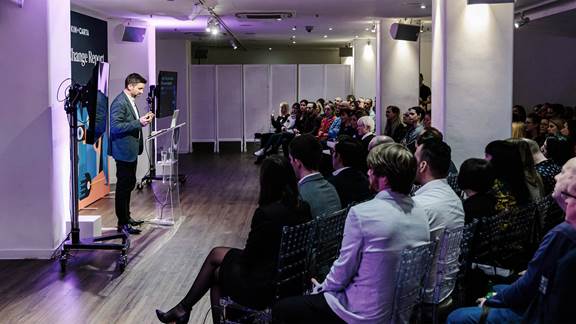
A World in Progress
Kin + Carta produces an annual change report, this year it's called ‘Trends, Technology and the World in Progress’ (available here). The UK launch of the report took place recently at the OXO Tower in London and it was also the opportunity to celebrate our own major change as the agencies of Kin + Carta rebranded and became even closer. Little did anyone know at the time that the world was about to change in a major way.
Joining our guests were three speakers who all tackled the subject of change in their own inspirational way. Each shining a light on how embracing change can lead to success and it’s a mindset that matters now more than ever.
Inspiring change
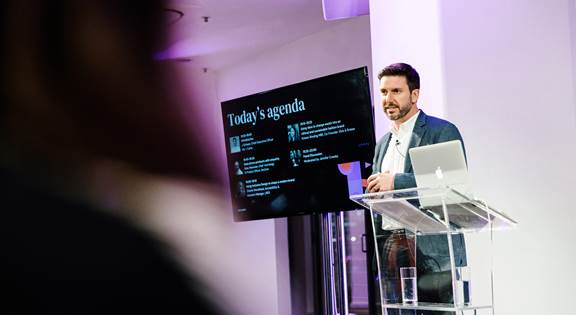
A world that works better
The CEO of Kin + Carta, J Schwan began proceedings by talking about his experience of change over 20 years. He said that success rarely came from a series of moonshots, but a culture of innovation resulting in steady, sustainable progress. Kin + Carta could not change the world but is on hand to make it work better.
<p>Download our report</p>Data with empathy
The first speaker was Giles Alexander, Chief Technology and Product Officer at XenZone – a mental health platform available to 80% of all young people in England. The platform is data driven and uses technology to help change lives. But Giles was careful to point out how this data must be used with empathy and, in fact, users were usually guided though various stages of recovery by a real person rather than an AI system. He stated that the data we collect on people only provides a glimpse of who they really are. That’s why XenZone allows its users to decide what to disclose and how they choose to get treatment. Whilst data can provide us with enormous benefits, more companies need to be mindful about the humans behind it.
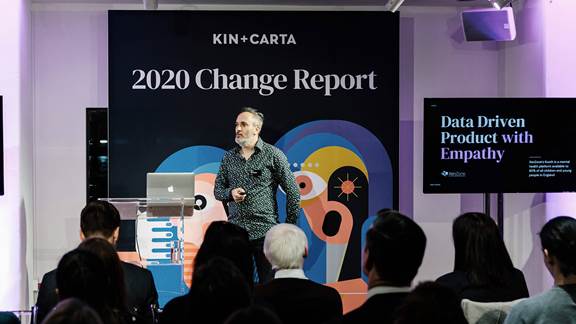
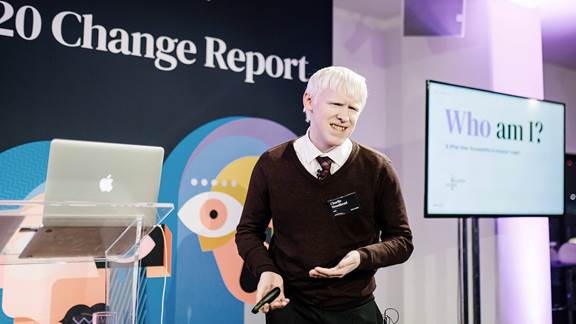
Opening new markets
Next up was Charlie Woodhead, Accessibility & Inclusion Manager at LNER. He talked about how designing with empathy can open up new markets. Charlie draws from personal experience, being partially sighted himself. He questioned why inclusive design is still not being adopted by many businesses, despite the fact this prevents access to a multi-billion pound market – around 20% of the population have some kind of disability. He argued that we don't need to know what someone’s disability is and how it stops them accessing our service. It should be the default position that we want everyone to use everything. Inclusive design can lead to some amazing achievements and Charlie is excited about the positive changes it can bring to the world.
Reducing waste
Finally Kresse Wesling MBE, the Co-Founder of Elvis & Kresse, talked about how her business is advancing change through a sustainable fashion concept. She argued that, rather than being radical, a BCorp approach mixed with rich accurate data could deliver an equitable, sustainable economy. However, the data in the waste sector is still very poor and not fit for purpose to create a world where recycling is the norm. She believed people and their planet are more important than shareholders. Although the Companies Act says that shareholders come first, Kresse questioned whether that was rational when we’re trying to save the environment.
